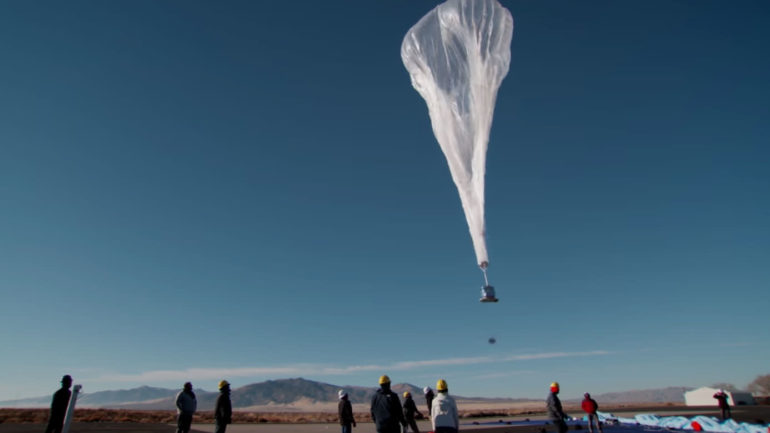Google parent-company Alphabet is saying goodbye to another one of its long-term experimental bets — this time, it’s Loon, the gigantic balloons the company had hoped to beam internet to rural areas of the world.
“While we’ve found a number of willing partners along the way, we haven’t found a way to get the costs low enough to build a long-term, sustainable business,” said Loon CEO Alastair Westgarth said in a blog post Thursday. “Developing radical new technology is inherently risky, but that doesn’t make breaking this news any easier. Today, I’m sad to share that Loon will be winding down.”
The cancellation comes after the company shut down another experimental business called Makani, which provided wind power from gigantic kites, in 2020. Both projects spun out of Alphabet’s “X” business unit, which hatches long-term experimental projects, and were accounted for under Alphabet’s “Other Bets,” distinct from Google, which provides nearly all of Alphabet’s revenue and all of its profits.
In its third-quarter earnings report, Alphabet said Other Bets generated $178 million in revenue compared to $155 million a year ago. Meanwhile, the businesses showed an operating loss of $1.10 billion, up from $941 million a year ago. Google, in contrast, earned $12.6 billion in operating income on revenue of $46 billion.
Loon had hit financial troubles recently, according to a November report by The Information. That report noted Loon executives’ top goal for 2020 was to secure its second round of external investment.
“The arc of innovation is long and unpredictable,” Westgarth continued in his farewell post. “While this isn’t the outcome I envisioned for Loon when I joined four years ago, I continue to be immensely proud of the accomplishments of the entire Loon team and hope that our efforts will live on in ways that we can’t yet imagine.”
In a separate blog post, Astro Teller, CEO of X and Chairman of Loon’s board, said Loon would pledge $10 million to “support nonprofits and businesses focussed on connectivity, Internet, entrepreneurship and education in Kenya.”
“Sadly, despite the team’s groundbreaking technical achievements over the last 9 years, the road to commercial viability has proven much longer and riskier than hoped,” Teller added.
Nominations are open for the 2021 CNBC Disruptor 50, a list of private start-ups using breakthrough technology to become the next generation of great public companies. Submit by Friday, Feb. 12, at 3 pm EST.



